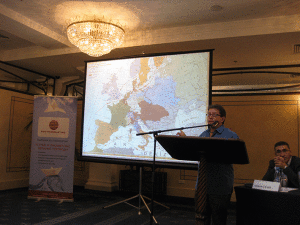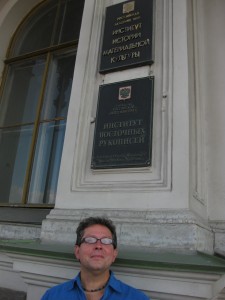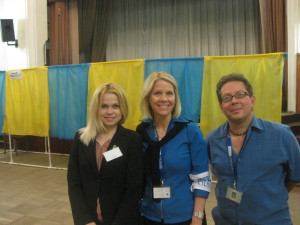This past summer the International Association of Maritime Studies (IAMS), together with Piri Reis University, Denizler Kitabevi, and Kaptan Yayincilik, published the conference proceedings from the First International Congress of Eurasian Maritime Studies, which Professor of History and American Studies Nabil Al-Tikriti participated in at Istanbul in 2012. The title of this peer-reviewed volume is Seapower, Technology, and Trade: Studies in Turkish Maritime History. Al-Tikriti‘s contribution, entitled “Ties that Bind: An Ottoman Maritime Patron from the Mediterranean to the Indian Ocean,” appears as the first chapter in the first part of the volume.
The abstract is as follows: “Following a brief commentary on the framing of ‘The Age of Exploration’ in U.S. Western Civilization textbooks, and a summary of the International Relations lineup in the early 16th century, I look at one particular Ottoman maritime patron who appears to have played a noticeable role in the Ottoman ‘pivot’ from the Mediterranean to the Indian Ocean just after the turn of the 16th century.”
In addition, on August 31, Stéphane Ipert, a France-based expert in preventative conservation, restoration, and digital libraries, presented a paper that he and Al-Tikriti jointly completed concerning the long-term effects on Iraq’s libraries and manuscript collections of the 2003 Anglo-American invasion and subsequent occupation of that country. The paper, entitled “A Survey of Iraqi Libraries Before and After the American Intervention,” was presented to the Tenth Islamic Manuscript Conference at Magdalene College at the University of Cambridge, organized by The Islamic Manuscript Association (TIMA).






